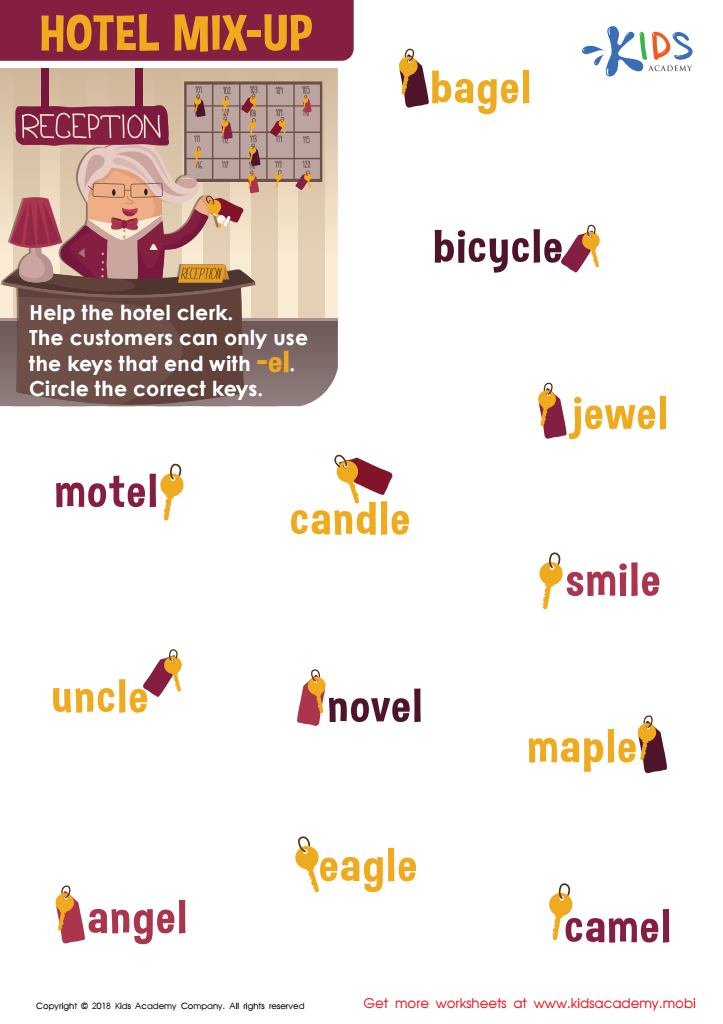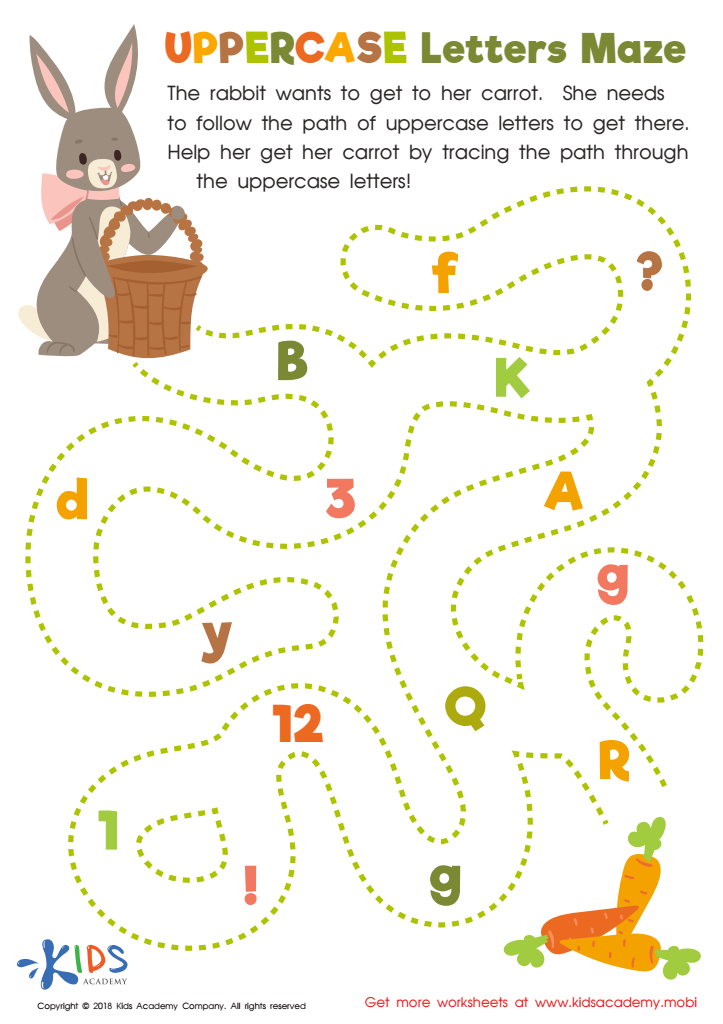Problem-Solving Skills Normal Letter Recognition Worksheets for Ages 3-9
3 filtered results
-
From - To
Introducing our Problem-Solving Skills Normal Letter Recognition Worksheets, specially designed for children aged 3-9. These engaging and educational worksheets combine letter recognition with problem-solving exercises to boost your child's cognitive development. Children will enjoy activities that involve identifying letters while solving puzzles, enhancing their critical thinking, and fine motor skills. Perfect for early learners, these worksheets offer a fun and interactive way to build a solid foundation in literacy and problem-solving. Whether at home or in the classroom, these resources will keep young minds stimulated and eager to learn. Discover the joy of productive learning today!


Hotel Mix-up Worksheet


Uppercase Letters Maze Worksheet


Long Vowel Maze /o/ and /i/ Worksheet
Problem-solving skills and normal letter recognition are fundamental for children ages 3-9 because they lay the groundwork for future academic success and cognitive development. At this critical stage, children's brains are highly adaptable and receptive to new information, making it an ideal time to instill essential skills.
Problem-solving abilities enable children to handle challenges and think critically. These skills encourage logical reasoning and creativity, empowering children to identify problems, generate various solutions, and evaluate outcomes effectively. As they encounter various scenarios in their daily lives or academic settings, their capacity to resolve issues independently builds their confidence and resilience.
Normal letter recognition is equally vital as it is the cornerstone of literacy. Children who can recognize letters effortlessly are more equipped to learn to read and write. This proficiency aids in phonemic awareness, where they learn the relationship between letters and sounds. Early literacy positively correlates with future academic achievements across subjects. Furthermore, reading proficiency is a critical predictor of educational attainment and lifelong learning.
Therefore, prioritizing the development of these skills helps children navigate their academic journeys with greater ease and success. Parents and teachers play pivotal roles in shaping these capabilities, providing activities and environments that foster an engaging, supportive atmosphere for growth and learning. These foundational skills are essential for their overall development and future endeavors.
 Assign to My Students
Assign to My Students



















